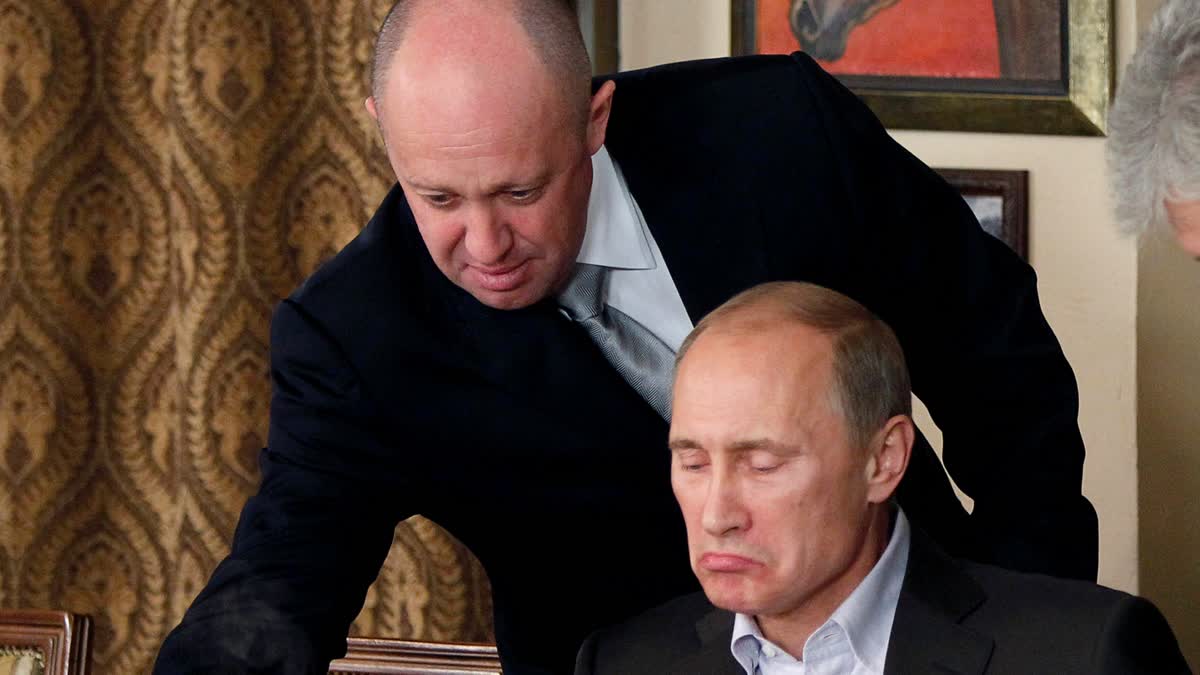Berlin:Yevgeny Prigozhin's fate has been entwined with the Kremlin for decades — as a trusted government contractor, and the head of the Wagner mercenary army that fought in Ukraine and has been blamed for doing Russia's dirty work in Syria and Africa.
But when he turned his men toward Moscow two months ago, many inside Russia and beyond started wondering just how long he could last after drawing the fury of Russian President Vladimir Putin.
Prigozhin cut a deal with Putin and the leader of Belarus for a safe haven for himself and the men involved in the rebellion. He was reported to pop up periodically in Russia, and appeared in a recruitment video earlier this week.
Also read-Mercenary leader Yevgeny Prigozhin is presumed dead after a plane crash outside Moscow
But then on Wednesday Russia's civil aviation agency said he was aboard a plane that crashed north of Moscow, killing all 10 people on board.
PRIGOZHIN'S BACKGROUND-Prigozhin was convicted of robbery and assault in 1981, and sentenced to 12 years in prison. When he got out, he opened a restaurant business in St. Petersburg in the 1990s. Putin was the city's deputy mayor at the time.
Prigozhin used that connection to develop a catering business and won lucrative Russian government contracts that earned him the nickname "Putin's chef." He later expanded into other areas, including media and an infamous internet "troll factory" that led to his indictment in the U.S. for meddling in the 2016 presidential election.
Wagner was first seen in action in eastern Ukraine soon after a separatist conflict erupted there in April 2014, in the weeks following Russia's annexation of Ukraine's Crimean Peninsula. At the time, Russia denied sending its own weapons and troops despite ample evidence to the contrary. The private Wagner army gave Moscow a degree of deniability.
Also read-Lawmakers say the UK should ban Russia's Wagner as a terrorist group
Wagner personnel also deployed to Syria, where Russia supported President Bashar Assad's government in a civil war. In Libya, they fought alongside forces of commander Khalifa Hifter. The group has also operated in the Central African Republic and Mali.
But it wasn't until September 2022 that Prigozhin acknowledged founding, leading and financing Wagner. By then, his mercenaries — including men he'd recruited in Russian prisons — were fighting and dying by scores in Ukraine, especially in the shattered town of Bakhmut.
REPUTATION FOR RUTHLESSNESS-Prigozhin fostered Wagner's reputation for ruthlessness, and the mercenaries have been accused by Western countries and U.N. experts of human rights abuses throughout Africa, including in Central African Republic, Libya and Mali.
A 2017 online video showed a group of armed people, reportedly Wagner contractors, torturing a Syrian and beating him to death with a sledgehammer before mutilating and burning his body.
In 2022, another video showed a former Wagner contractor beaten to death with a sledgehammer after he allegedly fled to the Ukrainian side and was repatriated.
